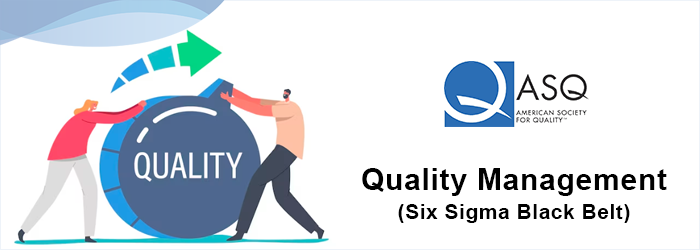

Become a Six Sigma expert who can describe the concepts and ideas of the methodology, as well as the supporting systems and technologies. Demonstrate team leadership, understand team dynamics, and assign roles and tasks to team members with this course. Your next key step toward a major career change is to get a Six Sigma Black Belt. You will be able to become transformation agents, known as the "expert issue solvers" on any team, and lead projects after completing this course.
A Black Belt that has a deeper understanding of the Six Sigma philosophy can lead projects, mentor Green Belts, and assist the organisation in driving improvement and income. Participants will learn about Six Sigma theories and principles, as well as supporting systems and tools, and will be able to exhibit team leadership, comprehend team dynamics, and assign roles and duties to team members. In accordance with Six Sigma principles, participants will have a complete understanding of all components of the DMAIC model. They understand the basics of lean enterprise concepts, can spot non-value-added items and operations, and can apply particular tools.
Six Sigma Balck Belt is Recommended For:
Prerequisites for obtaining the Six Sigma Black Belt Certification
Learning Objectives
Learning Objectives
Learning Objectives
Learning Objectives
Learning Objectives
Learning Objectives
Learning Objectives
Learning Objectives
Learning Objectives